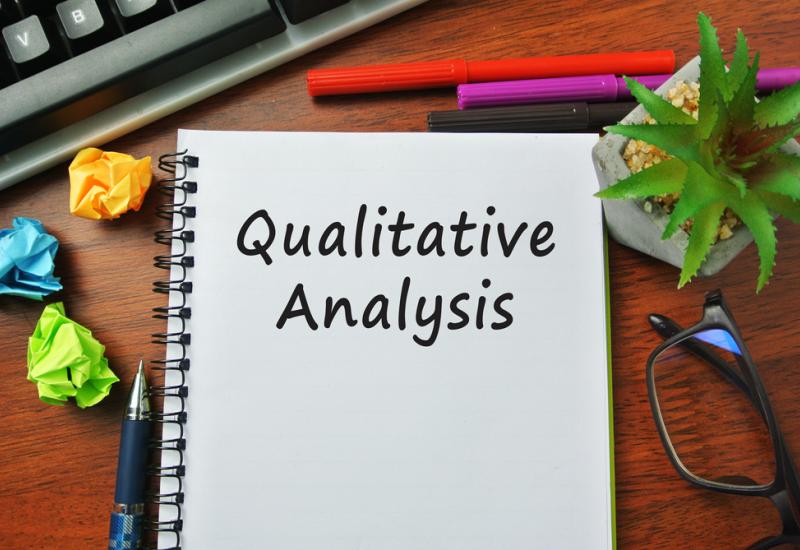10 important points the evaluators should consider while evaluating PhD Research Proposals
Evaluating PhD research proposal is a critical task that demands a thorough and professional assessment. Research proposal evaluators/assessors must consider various key aspects to ensure the proposed research is of high quality, feasible, and makes a meaningful contribution to the academic field.
In this bog post we discus 10 important points the evaluators should keep in mind while evaluating a PhD research proposal.
- Introduction and background:
The introduction and background section delineated in a research proposal serves as a critical foundation for the study, setting the stage for the research problem, its significance, and the context within which it will be addressed. When evaluating this section in PhD research proposals, evaluators /assessors should consider the following key elements:
- Evaluate the clarity and completeness of the introduction as it should provide a concise background, context, and rationale for the proposed research.
- Assess how clearly and concisely the introduction communicates the purpose and scope of the proposed research.
- Assess the researcher’s ability to identify and articulate the research problem or gap in existing literature.
- Evaluate the researcher’s understanding to place the research problem within its broader academic, theoretical and real-world context.
- Assess the justification for undertaking the proposed research and why it is important or timely.
- Evaluate how well the introduction aligns with existing literature and theoretical frameworks.
- Assess the proposed research’s potential contribution to academic knowledge and real-world applications.
Evaluating the introduction and background of a research proposal involves a comprehensive analysis of how well the researcher introduces and justifies the study. A well-crafted introduction sets the tone for the entire proposal, ensuring that the research problem is clearly defined, significant, and appropriately contextualized within existing knowledge. Providing detailed feedback on these considerations helps guide the researcher in refining this crucial section of their proposal.
- Research objectives and questions:
Assessing the research objectives and questions outlined in a PhD research proposal is a crucial aspect of the evaluation process. This section delineates the aims and scope of the study, providing a roadmap for the research endeavor. When evaluating this component, evaluators should consider the following important aspects to ensure clarity, specificity, and alignment with the overall research goals:
- Scrutinize the research objectives to ensure they are clearly defined, specific, and aligned with the overall purpose of the study.
- Assess how clearly and precisely the research objectives and questions are articulated.
- Assess the formulation of research questions or hypotheses. They should be focused and directly related to the research objectives.
- Verify if the proposed research question is relevant, significant, and contributes to the existing body of knowledge in the field.
- Evaluate the extent to which the research objectives and questions directly address the identified research problem.
- Assess the degree of originality and the potential contribution of the research objectives to the existing body of knowledge.
- Evaluate the relevance of the research objectives and questions to the broader academic field and existing literature.
Evaluating the research objectives and questions in a PhD research proposal requires a thorough analysis of their clarity, alignment with the research problem, feasibility, and potential contribution to the field. Providing constructive feedback in these areas ensures that the researcher refines and strengthens this foundational aspect of their proposal, contributing to the overall quality and significance of the proposed research.
- Literature review:
Assessing the literature review undertaken for developing a PhD research proposal is a critical aspect of the evaluation process as it demonstrates the researcher’s understanding of existing scholarship, identifies gaps in knowledge, and justifies the need for the proposed study. Evaluators should reflect upon the following key elements to ensure the literature review is comprehensive, well-structured, and contributes to the scholarly context of the research:
- Examine the literature review for depth, breadth, and critical analysis assessing the researcher’s coverage of relevant studies, theories, and concepts. It should demonstrate a thorough understanding of the existing research and identify gaps that justify the proposed study.
- Assess the quality and comprehensiveness of the literature review. It should provide a thorough review of existing research, identifying gaps that the proposed study aims to fill.
- Evaluate the currency of the literature and the selection of key references.
- Assess the researcher’s ability to critically evaluate and synthesize the existing literature.
- Evaluate the organization and structure of the literature review, ensuring a logical progression of ideas.
- Assess the researcher’s identification and articulation of gaps in the existing literature.
- Evaluate the relevance of the literature review to the stated research problem and objectives.
- Assess the researcher’s ability to synthesize common themes, trends, or patterns across the literature.
- Assess the development of a strong theoretical framework based on the literature.
- Assess whether the literature review presents a balanced and impartial view of different perspectives.
Evaluating the literature review in a PhD research proposal requires a meticulous analysis of its comprehensiveness, critical analysis, logical organization, and relevance to the proposed study. Providing detailed feedback in these areas ensures that the researcher refines and strengthens this foundational section, enhancing the overall scholarly contribution of the proposed research.
- Theoretical/ Conceptual framework:
Assessing the theoretical/Conceptual framework anticipated in a PhD research proposal is a critical aspect of the evaluation process, as it provides the intellectual foundation for the study. Theoretical frameworks guide the research, shaping the formulation of research questions, guiding the choice of methods, and informing the interpretation of results. When evaluating the theoretical framework section in the research proposal, evaluators should consider the following key points to ensure its relevance, clarity and alignment with the research problem:
- Evaluate the theoretical framework proposed for the study as it should demonstrate a solid understanding of relevant theories and concepts and how they relate to the research problem providing a solid foundation for the research.
- Assess the appropriateness and relevance of the theoretical framework as it should provide a conceptual foundation for the study and connect the research to established theories and models.
- Assess the clarity and coherence of the theoretical framework, ensuring that it is well-defined and logically presented.
- Evaluate the relevance of the chosen theoretical framework to the identified research problem.
- Assess how well the theoretical framework aligns with the research objectives and questions.
- Assess whether the theoretical framework integrates multiple theoretical perspectives or approaches.
- Evaluate whether the theoretical framework contributes to the originality and innovation of the proposed research.
Evaluating the theoretical framework in a PhD research proposal demands a thorough analysis of its clarity, relevance, and alignment with the research problem. Providing detailed feedback in these areas ensures that the researcher refines and strengthens this foundational element, enhancing the overall theoretical grounding of the proposed research.
- Research design and methodology:
Assessing the research design and methodology proposed in a PhD research proposal is a critical component of the evaluation process, as it outlines the plan for conducting the study. Evaluators should consider various key elements to ensure the proposed research design is rigorous, feasible, and aligns with the overall objectives of the study. The following points should be conserved by the evaluators to assess the research design and methodology:
- Scrutinize the research design and methodology. Ensure they are well-suited to answer the research questions and contribute to the study’s objectives.
- Evaluate the clarity of the research design in terms of whether it is experimental, observational, or qualitative.
- Evaluate how clearly and precisely the research design and methodology are articulated.
- Examine the research design and methodology to ensure they are appropriate for addressing the research question
- Assess how well the research design aligns with the stated research objectives and questions.
- Scrutinize the research design and methodology. Ensure that the chosen methods are appropriate for addressing the research questions and that the study design is sound.
Evaluating the research design and methodology in a PhD research proposal involves a thorough analysis of its clarity, alignment with objectives, justification, and ethical considerations. Providing detailed feedback on these aspects ensures that the proposed study is methodologically sound, feasible, and aligned with the overall goals of the research.
- Sampling and data collection:
Assessing the sampling and data collection methods in a PhD research study is a critical component of the evaluation process, as it directly impacts the quality and reliability of the study’s findings. Evaluators should consider the following key factors to ensure that the proposed sampling strategy and data collection methods are appropriate, rigorous, and aligned with the research objectives:
- Evaluate the proposed sampling techniques and data collection methods. Check whether they are suitable for the research context and if the researcher has considered potential challenges. Assess their appropriateness for the study and the research context.
- Evaluate how clearly and precisely the sampling strategy and data collection methods are described.
- Check for clarity in the description of data collection methods, sampling techniques, and data analysis procedures.
- Assess how well the sampling strategy and data collection methods align with the stated research objectives and questions.
- Assess the extent to which the proposed sample is representative of the target population and the generalization potential of the findings.
- Consider the potential challenges related to sampling and data collection and whether the researcher has addressed them adequately.
Evaluating the sampling and data collection methods in a PhD research proposal involves a thorough analysis of their clarity, appropriateness, and alignment with the research objectives. Providing detailed feedback on these aspects ensures that the proposed study’s data collection processes are methodologically sound, ethically robust, and capable of generating reliable and valid findings.
- Data analysis plan:
Assessing the data analysis plan of a PhD research study is crucial for evaluating the methodological rigor and the researcher’s ability to derive meaningful insights from collected data. The data analysis plan outlines the strategies and techniques that will be employed to analyze the data and answer the research questions. Evaluators should consider the following key points to ensure that the proposed data analysis plan is appropriate, well-defined, and aligned with the study’s objectives:
- Examine the data analysis plan. It should be detailed, specifying the statistical or qualitative methods to be employed and explaining how they will address the research questions.
- Evaluate how clearly and precisely the data analysis plan is articulated.
- Assess how well the data analysis plan aligns with the stated research questions and objectives.
- Evaluate whether the researcher justifies the choice of specific data analysis methods.
- Assess how the researcher plans to interpret and present the results.
- Assess the appropriateness of the chosen statistical or analytical techniques.
Evaluating the data analysis plan in a PhD research proposal involves a thorough analysis of its clarity, appropriateness, and alignment with the research questions. Providing detailed feedback on these aspects ensures that the proposed study’s data analysis processes are methodologically sound, capable of addressing the research questions, and contribute to the advancement of knowledge in the field.
- Feasibility:
Assessing the feasibility of a PhD research study is a critical aspect of the evaluation process, as it examines the practicality and viability of conducting the proposed study within the constraints of time, resources, and ethical considerations. Evaluators should consider the following key elements to ensure that the proposed research is feasible and has a realistic chance of success:
- Assess the feasibility of the proposed research. Consider whether the researcher has realistically accounted for the necessary resources, time, and access to data or participants.
- Evaluate the feasibility of the proposed research. Consider whether the resources, time, and expertise required are realistically available.
- Assess the feasibility of the proposed research. Consider whether the researcher has the necessary resources, time, and access to data or participants to successfully complete the study.
- Evaluate the availability of necessary resources, including funding, equipment, and personnel.
- Assess the feasibility of completing the study within the proposed time frame.
- Assess the feasibility of addressing potential challenges in data collection.
Evaluating the feasibility of a PhD research proposal involves a thorough analysis of the practicality and viability of the proposed study. Providing detailed feedback on these aspects ensures that the research is not only theoretically sound but also executable within the available resources and ethical considerations. A well-considered feasibility assessment contributes to the overall quality and success of the proposed research.
- Innovation and contribution:
It is crucial for the evaluators/assessor to assess the potential impact of the study on the existing body of knowledge. Evaluators should consider various key elements to ensure that the proposed research is innovative, addresses a significant gap in the literature and has the potential to contribute to the advancement of the field. The following areas should be taken into considering by the evaluators while assessing this section of the research proposal:
- Look for evidence of innovation and originality. Evaluate how the proposed research contributes to the existing body of knowledge and whether it introduces new perspectives or methodologies.
- Assess the proposal’s potential to contribute new insights to the field. Look for evidence of innovation and originality in the approach or methodology.
- Look for evidence of innovation and originality. The proposal should outline how the research contributes to existing knowledge and what makes it unique.
- Evaluate the researcher’s ability to clearly identify a gap in the existing literature.
- Assess the originality and uniqueness of the research questions or hypotheses.
- Assess the development of a conceptual framework and theoretical contributions.
- Assess the practical relevance and applicability of the proposed research.
Evaluating the innovation and contribution of a PhD research proposal involves a thorough analysis of its originality, theoretical and methodological contributions, and potential impact on the field. Providing detailed feedback on these aspects ensures that the proposed study is not only academically rigorous but also has the potential to significantly advance knowledge within the chosen research area. A well-conceived and innovative research proposal contributes to the overall intellectual development of the field.
- Significance and impact:
It is essential for the evaluators/assessor to consider the potential contribution of the study to the academic field, as well as its broader implications for society, policy, or practice. Evaluators should consider various key elements to ensure that the proposed research has substantial significance and can make a meaningful impact. There are a few points the evaluators must should consider to assess the significance and impact of a PhD research study:
- Assess whether the study has the potential to advance the field, influence practice, or address real-world issues.
- Consider the potential significance and impact of the research. Does it have the potential to advance knowledge, inform practice, or address real-world problems?
- Assess the proposal’s relevance to existing knowledge and literature in the field.
- Assess how well the significance aligns with the stated research objectives.
- Assess the potential contribution of the study to theoretical, empirical, or methodological knowledge.
- Assess whether the proposed research addresses practical issues or challenges.
Evaluating the significance and impact of a PhD research proposal involves a thorough analysis of its relevance to existing knowledge, potential contributions, and broader implications for the academic field and society. Providing detailed feedback on these aspects ensures that the proposed study is not only academically meaningful but also has the potential to make a lasting impact on knowledge, practice, and societal well-being. A well-conceived research proposal with high significance and impact contributes to the advancement of both academic and practical domains.
Conclusion:
Evaluating a PhD research proposal requires a holistic approach, combining an understanding of the theoretical framework, research design, feasibility, and ethical considerations. Providing constructive feedback on these aspects ensures the proposal’s continuous improvement and contributes to the rigor and quality of the research endeavor. The evaluators must evaluate each proposal on its own merit, avoiding personal biases or preconceived notions about the applicant or topic. Besides they should maintain confidentiality and impartiality throughout the evaluation process
By paying attention to these points, the evaluators/assessors can thoroughly evaluate the quality and feasibility of a PhD student’s research proposal. Providing a detailed and constructive feedback on these aspects will not only help the researcher improve their proposal but also contribute to the quality of the overall research endeavor.


















